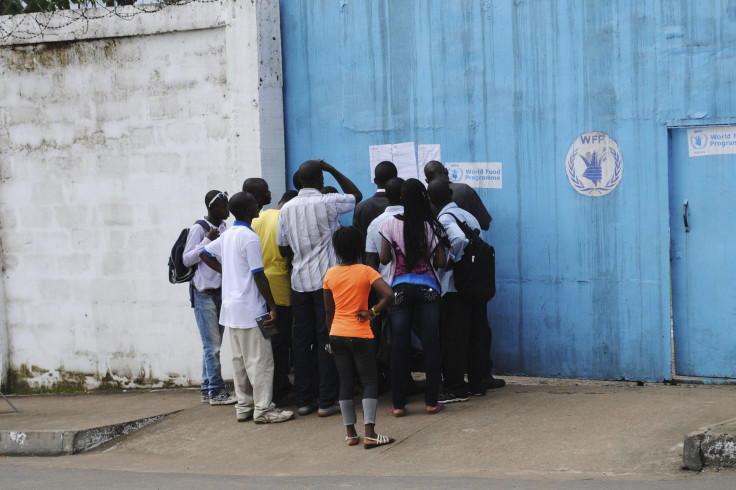Ebola Outbreak 2014: An Impending Food Crisis Worries Officials

The Ebola outbreak is causing a food crisis in West Africa. The virus has already killed more than 4,000 people and left local residents struggling to cope with food shortages and spiking prices.
In countries like Sierra Leone, Liberia and Guinea, where poverty rates are already high, economists say these problems could have an impact on trade long after the outbreak is over.
“Food prices can be seen as the outcome of supply and demand,” said Amadou Sy, Africa economist at the Brookings Institutution. “With restrictions on the movement of people and goods as well as the death toll, supply of agricultural products falls and prices rise.”
Before the outbreak, Sierra Leone had been making economic progress over the past decade, reaching an annual per capita income of $680 last year, though more than half of its population lives below the poverty line. But Ebola has now spread through most of the country, with a badly equipped health care system struggling to keep up and a series of quarantines further hindering the response.
The two districts where Ebola first emerged, called Kailahun and Kenema, are also home to a fifth of the country’s population and contain the most productive agricultural areas -- generating 18 percent of the total domestic rice output. They are now among the hardest-hit by food insecurity. The Food and Agriculture Organization (FAO) reported in September that 90 percent of land in a key area of the region had not been cultivated.
“This has begun to have a marked effect on economic activity, one that is disproportionate to the human toll that Ebola has taken to date,” the World Bank wrote in a recent report. “The actions of economic agents are being driven by a high level of aversion behavior and this may be considered the root cause of the unfolding slow down.”
Even before Ebola, Liberia had the lowest per-capita income of the three affected countries at just $410, and is also the most seriously affected by Ebola, despite its otherwise relatively positive economic outlook before the outbreak.
However, the country’s main food growing areas in the northwest part of the country have also been among the worst hit by the outbreak.
“Even in cases where farming operations are ongoing, the shortage of labor as a result of the quarantine and the migration of some families from these areas at the onset of the outbreak has affected both the harvesting and replanting of several crops,” the World Bank report reads.
Of all the heavily affected countries, Guinea seems to be faring the best, in relative terms. It was the first country to be hit by the Ebola virus, but the nation’s health officials worked with international organizations to react quickly and control the spread.
The outbreak has still had a major affect on its markets, especially commodities. Coffee production has fallen by half, cocoa is down by a third, while palm oil production is down 75 percent. Foreign companies have withdrawn their workers and airlines have reduced their flights, which has caused related problems in the service sector.
“Early results from rapid assessments point to a worrisome situation,” a spokesperson for the Food and Agriculture Organization of the United Nations told International Business Times, adding that in some local markets, food prices have increased roughly 150 percent.
The agency is currently surveying the populations using mobile phones, to uncover “food security hotspots,” and monitor trends going into the harvest season.
And its not only these three countries that could see a problem in the future.
“There is also an additional risk related to trade disruptions,” said Jose Cuesta, author of the World Bank’s Food Price Watch report. “Importers from countries not affected by Ebola but trading with Ebola-affected countries may refuse to physically engage in that trade.”
Cuesta added that, while FAO data doesn’t suggest that much of this behavior is currently being observed, it's something they are watching closely.
© Copyright IBTimes 2025. All rights reserved.






















